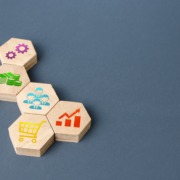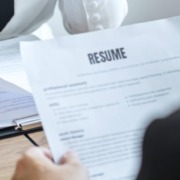The other day I was watching a YouTube video, which depicted various “mind traps” that affect how we see the world. Mind traps in the world of psychology are called cognitive distortions, aka ways our brain can trick us into a false reality. While the brain is the most intricate and complex organ in our body, it can be lazy. Meaning that it wants to make things easy because it needs to be efficient to function. I won’t go into detail in the hopes of not losing you to science. However, it’s important to note that the more aware you are of these mind traps, the more capable you are to deter them from affecting your thought processes and thus your decisions. A great example of a mind trap is confirmation bias.
Confirmation bias is subconsciously looking for and more readily accepting information that fits into your currently held beliefs. It’s easy to see how this can become a problem. If you are quicker to see and accept information that affirms what you already believe to be true, then you have a big blind spot. For this reason, having someone who can play “devil’s advocate” is incredibly important. That can help you walk through all possible impacts of a decision, all possible reasons for a certain outcome, etc.
There are whole areas in business dedicated to decision making, such as business strategizing and data science. The goal being to make the best, data-driven decisions to set a business up for success. What I’ve found more than anything in my business research thus far is that it’s incredibly important to make decisions based on data rather than feelings or emotions. This is why data science is so important because it is hard to argue with numbers. However, nothing’s perfect and sometimes even data leaves room for interpretation. For example, if you believe a big strength of your company is support and you subsequently conduct market research, you are biased towards believing a big strength is support, rather than keeping an open mind and allowing the research and data show you what the specific strengths are.
Confirmation bias can affect us in other areas as well. AI and algorithms have taken this to a whole new level. Algorithms in social media apps push stories that align with content with which you’re interacting. So, if I like a bunch of posts about animals, I am going to keep seeing more posts on my feed about animals. Sure, animals are harmless, but other content might not be. This is dangerous in a world where “fake news” runs rampant. It exponentially increases confirmation bias because in this case, the algorithms and AI remove the “devil’s advocate” and alternative information sources. It makes it difficult to even seek out and find alternative articles. The goal of this is in no way meant to be political or divisive, but rather cause you to pause next time you’re viewing content and make sure you’re looking for all types of content or “neutral” news sources.
In research, you are taught to actually seek out information that disaffirms your theory. This is good practice to uncover weak points in your decisions and beliefs. I’m curious what you do to prevent confirmation bias in your organization, to look at scenarios from all angles. Comment below or send me an email at kristenh@idebamarketing.com.
Kristen Higgins – Senior Research Analyst






